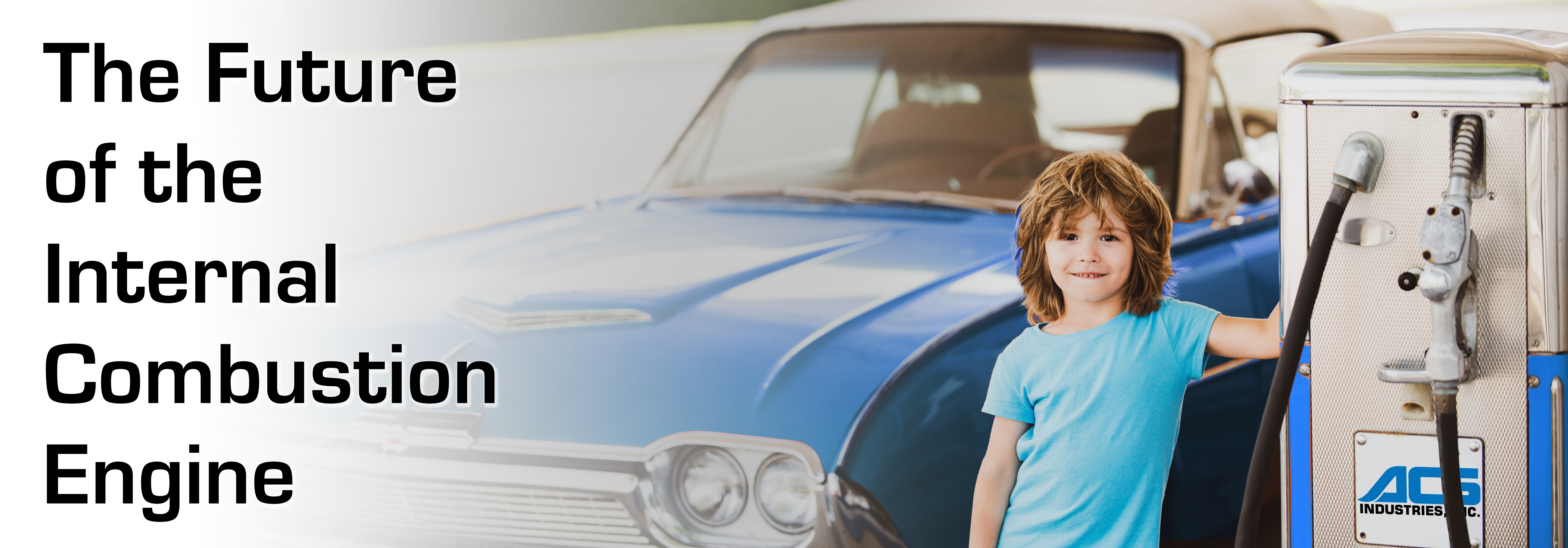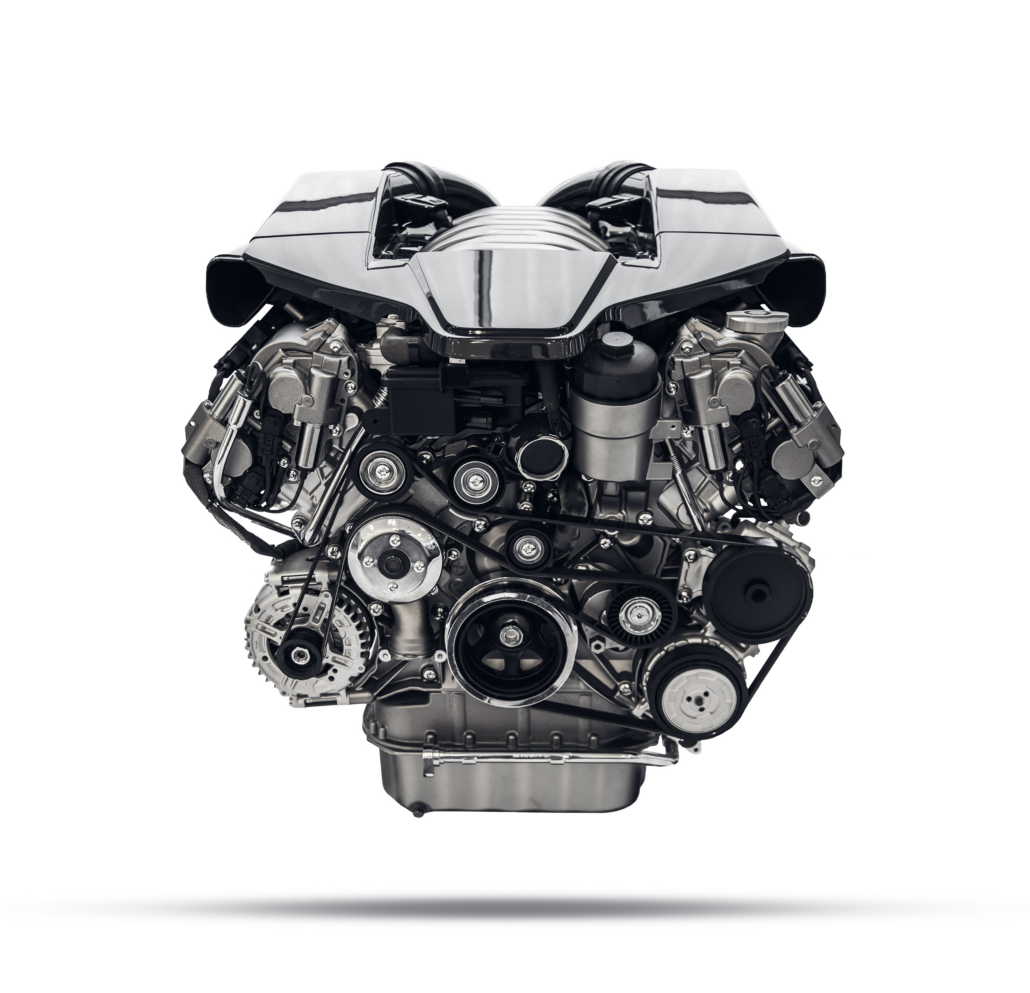Many commercial vehicle manufacturers are already releasing new low emission, alternative fuel vehicles that will be able to join the fleet long before the electric vehicle infrastructure matures. Cummins is set to release a spark-ignited natural gas engine in 2024 which will be the company’s first engine based on their new “fuel-agnostic” platform. This engine promises torque numbers competitive with most semi-trucks, 20% more power than a standard diesel engine, less noise, and the emissions can be controlled with selective catalytic reduction systems and particulate filters (Baxter, 2023).
E-fuels have been seen as a potential way to extend the life of the ICE but at the moment carbon-neutral e-fuel requires about 4 times as much energy as it takes to charge an electric vehicle and the cost of e-fuels remains prohibitively expensive (over $25 a gallon). Investments are being made to the bring the cost of e-fuels down, including a $260 million production facility currently under construction in Chile. If the price of e-fuels falls they might serve well as a lower-polluting substitute for gasoline while the electric vehicle infrastructure develops (Bloomberg, 2024).
Some auto manufacturers including Porsche are campaigning to exempt e-fuel cars from the combustion engine ban in Europe. These e-fuel proponents believe this technology will be an environmentally friendly way to continue driving our favorite combustion engines into the future. Porsche is still projecting to see electric vehicles make up 80% of its sales by 2030 but does not support a ban on e-fuel powered engines; a stance that Germany and some other European players support (Bolduc, 2023).
E-fuels might also become the future of air travel. Purely electric engines will probably never be ideal for long flights because of battery weight while e-fuels provide a more feasible way to drastically reduce emissions (Calma, 2023).
Hydrogen combustion engines have also become a potential target for the future of passenger vehicles. Toyota has been working since the early 2000’s to develop HCE technology and has successfully released prototype trucks, vans, and sports cars running on hydrogen combustion. Toyota has pioneered a water cooling system for its HCE engines which remedies the major concern of overheating in this type of engine. HCE technology promises faster refueling times and longer range than EV’s as well as the benefit of avoiding any battery production and disposal related environmental concerns (Ntui, 2024).
The future of engines appears to be fractured. Battery power may be the future of the passenger car, but fuel cell vehicles and hydrogen combustion engines have some considerable advantages. If the costs of Hydrogen fall far enough FCEV’s and HCE’s could very well become more attractive to consumers than BEV’s. Outside of the passenger car space things become more complicated with battery vehicles falling short on range for commercial trucking, and weighing too much for air travel. Both industries may rely heavily on combustion engines burning alternative fuels well past the 2040 end date of small ICE vehicles in many countries.
Emissions filtration systems will become even more important in the future as governments attempt to finally realize fully carbon-neutral economies while still relying on combustion engines in several major sectors. Emissions regulations will only get tighter as we approach the target neutrality dates.
ACS has decades of experience working with powertrain manufacturers around the world to drive down emissions in internal combustion engines for passenger cars, semitrucks, motorcycles, and recreational vehicles, and we can work with you to make sure any vehicles you assemble meet the most stringent of regulations.
ACS is a technology agnostic company. We are actively researching, designing and manufacturing components for hydrogen producing electrolyzers, fuel cells, battery powered vehicles and more. We believe in supporting a green future through the development of new technologies and we believe that no single technology will hold all the keys to carbon neutrality. In the meantime, we are doing everything we can to decarbonize the transportation industry as it stands right now through our Automotive Exhaust Products department.
Give us a call today to make sure your organization is prepared for the future, no matter what that turns out to be.
References
Pushback.” Reuters, Reuters, 3 Mar. 2023, https://www.reuters.com/world/europe/eu-delays-vote-combustion-engine-phaseout-after-german-pushback-2023-03-03/.
Baxter, John. “Technology Fuels a New Future for Internal Combustion Engine | Transport Topics.” Transport Topics, Transport Topics, 31 July 2023, https://www.ttnews.com/articles/future-combustion-engine.
Bloomberg. (2024, January 25). Porsche CFO says Europe may delay combustion-engine ban. Automotive News Europe. Retrieved February 2, 2024, from https://europe.autonews.com/environmentemissions/eu-may-delay-fossil-fuel-car-ban-porsche-says?adobe_mc=MCMID%3D72799429496041273611524369815931354843%7CMCORGID%3D138FFF2554E6E7220A4C98C6%2540AdobeOrg%7CTS%3D1706890455&CSAuthResp=1%3A%3A1570836%3A20608%3A24%3Asuccess%3A560A230953045248D378A6F393C056FB
Bolduc, D. A. (2023, March 4). Porsche CEO defends e-fuels strategy. Automotive News Europe. Retrieved February 2, 2024, from https://europe.autonews.com/automakers/porsche-ceo-oliver-blume-says-evs-and-e-fuels-can-coexist
Calma, Justine. “Why Cars Running on E-Fuel Can’t Replace EVs – The Verge.” The Verge, The Verge, 8 Mar. 2023, https://www.theverge.com/2023/3/8/23630413/efuel-car-ev-gas-price-engine-cars.
“Commercial Vehicles Market Size & Share Report, 2030.” Market Research Reports & Consulting | Grand View Research, Inc., Grand View Research, 2023, https://www.grandviewresearch.com/industry-analysis/commercial-vehicle-market#:~:text=b.-,The%20global%20commercial%20vehicles%20market%20size%20was%20estimated%20at%20USD,USD%201%2C431.92%20billion%20in%202023.
Ntui, A. I. (2024, January 30). How hydrogen combustion engines will challenge the EV market at its core. TopSpeed. https://www.topspeed.com/how-hydrogen-combustion-engines-challenge-evs/
Sutaria, Pratik, and Nikhil Sikotra. “The Future of Internal Combustion Engine | Aranca.” Global Research and Analytics Firm | Investment, Business, Intellectual Property Research and Business Valuation Services | Aranca, Aranca, 5 Jan. 2023, https://www.aranca.com/knowledge-library/articles/investment-research/the-future-of-internal-combustion-engine.


